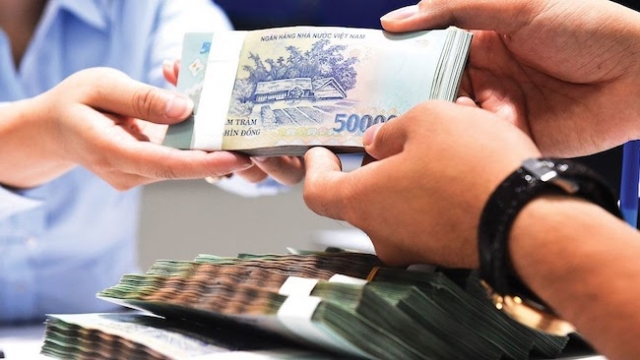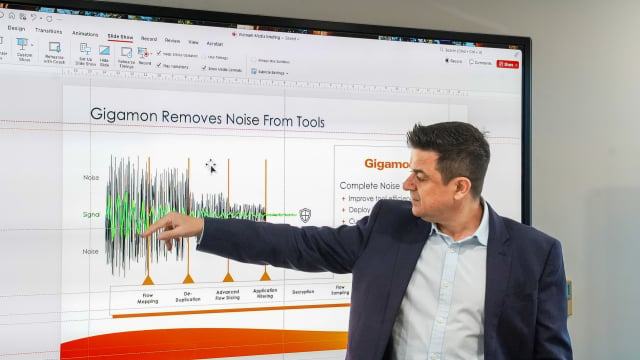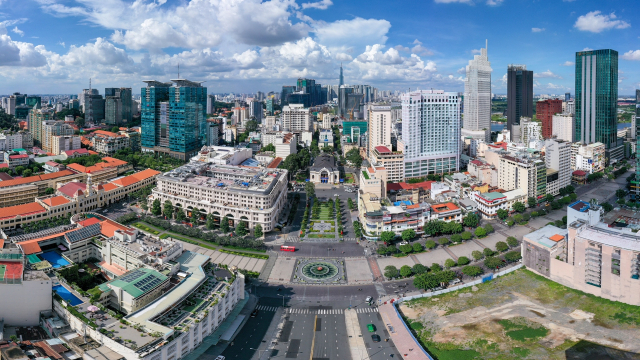Leader Talk
HSBC anticipates a multi-year bull run for Vietnam's stock market
HSBC remains positive about the prospects of Vietnam’s stock market in 2022 as well as in the long term. HSBC Global Research forecasts VN-Index will reach 1,850 points in 2022.
James Estaugh, head of securities services, HSBC Vietnam, said that Vietnam’s stock market has a bright outlook this year.
The market capability is expected to be improved with KRX systems in place.
The new market comprehensive trading and post-trade systems provided by the KRX is expected to take place in 2022, of which new technology will be capable of facilitating significant increases in trading volume and resolve system congestion.
The technology will also provide the infrastructure to launch new products such as intraday trading, sale of receivable shares and non- voting depositary receipts (NVDRs), which will attract new and increased foreign investment.
In order to increase the purchasing powers of foreign investors and set the stage for Vietnam to be upgraded to emerging market status, the authority has finalised a legal framework for the Central Counterparty Party (CCP) model, which is expected to be launched as soon as the new settlement and clearing systems go live in 2022.
Another important and long-awaited development will be the removal of the mandatory cash prefunding requirement for buy trades via launch of the new settlement and clearing system under the CCP model.
The CCP model is planned to be launched alongside the new KRX systems and mean investors will no longer have to prefund their purchases. This should increase the purchasing powers of investors in general and foreign investors in particular, supporting Vietnam to attract more foreign investments.

The investable stocks and products are available for foreign investors.
Despite the fact that Vietnam’s foreign ownership limits (FOL) has not been changed much, a quick look at the VN30 Index, which comprises 30 large-caps, confirms foreign investors have enough investable stocks to choose from.
Of the 30 stocks in the VN30, only five have reached foreign ownership limits, 13 stocks have market caps above $5 billion, and 12 traded at more than $10 million a day.
Meanwhile, Exchange Traded Funds (ETFs) continue to help foreign investors gain exposure to companies that have reached foreign ownership limits. In 2021, local ETFs delivered average growth of 40 per cent versus 24.7 per cent for foreign ETFs.
Non-Voting Depositary Receipts (NVDRs) and Covered Warrants with underlying assets being indices offer investors further opportunities to earn profits from securities that are already at their foreign ownership limits.
Vietnam’s stock market experienced a record high net selling by foreign investors in 2021 valued at over VND62,000 billion. “However, we are confident that the foreign capital flows will return strongly in 2022 for good reasons,” James Estaugh affirmed.
Apart from the favourable macro factors, Vietnam’s market has its own attractiveness to lure foreign investors. In fact, the foreign investors have undertaken net buying since the first few weeks of 2022.
Lastly, he highlighted Vietnam’s emerging market status on the horizon. “It’s about time for foreign investors to position themselves now and be ready for the time when Vietnam is upgraded to emerging market status – a foreseeable prospect in the next few years.”
By 2025, the prime minister’s target is that Vietnam will be upgraded to EM status by index providers such as FTSE and MSCI, which is a part of government’s stock market development plan approved.
To pave the way for Vietnam to achieve emerging market status, the legal framework for a number of market reforms, which was issued in 2021, is going to be implemented from 2022 onwards.
It addresses two key things, including the new settlement and clearing system under the Central Counterparty Party (CCP) model to replace the mandatory cash prefunding requirement for buy trades; and the problem of limiting capital ownership ratio of foreign investors with the launch of NVDR.
Some recommendations
James Estaugh emphasized that in order to hit the above expectations in the future, the market as well as the investors, foreign investors in particular, will need further support from authorities.
Firstly, the regulations on stock market’s service providing and investing should be consistent and hamonised to further relax ownership rules for foreign investors, in accordance with the Law on Investment or regulations on cash vs securities accounts, consularisation of certain documents of the cash account opening application for foreign investors.
Secondly, the new systems should be timely launched to facilitate trading and post-trade activities on Vietnam’s stock market, providing the infrastructure to launch new products and uniting the bottlenecks of prefunding requirement and FOLs.
Thirdly, official and fully disclosed information should be easily accessible and administrative procedures should be further simplified for investors, including foreign investors.
More chances for Vietnam to finance sustainable development
Vietnam turns semiconductor vision into action
The global semiconductor industry is being reshaped by geopolitical tensions, shifting supply chains, and the surge of digital technologies.
Cutting red tape in APA approvals to speed up tax negotiations
The change in APA approval authority is expected to shorten processing time and enhance business proactiveness in international tax negotiations.
Enterprise cybersecurity is under threat from the inside
As hybrid cloud systems grow more complex, Vietnamese enterprises are struggling to detect cybersecurity threats moving laterally within their own networks.
Breakthrough for the international financial center ambition
The submission of the draft resolution on Vietnam’s international financial center to the National Assembly heralds a new developmental era for the country.
How leadership philosophy redefines hospitality in Nha Trang
More than just running a 5-star resort, Kristian Petersen is redefining the art of hospitality with a humane and sustainable leadership philosophy.
When organic becomes an inspiring wellbeing lifestyle
For Tyna Huynh, co-founder of Drinkizz, organic is not just a food choice but a way of life that fosters a deep connection between people, nature and community.










































